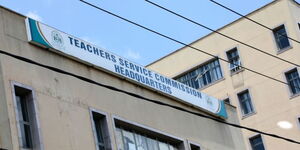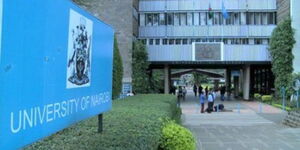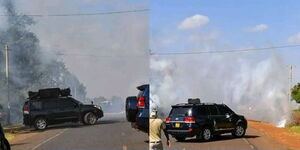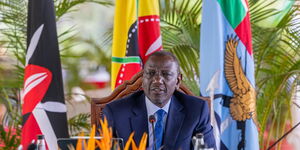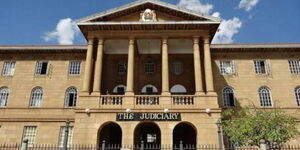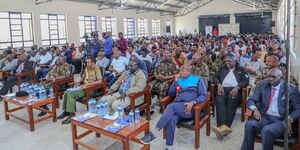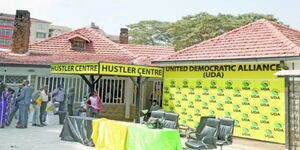Nairobi Governor Johnson Sakaja on Sunday, January 8 shared a video of the new Electric Bus Rapid Transit (BRT) plying the Thika Superhighway route on his Facebook page.
In the post that has since gone viral, the bus is seen making a stopover at one of the stages on the busy superhighway with netizens immediately loving it.
A lady is heard on the video surprised and excited at the prospects of communicating in the buses that were part of former President Uhuru Kenyatta's projects within the capital.
“This is beautiful, the bus looks good, oh my God!” she exclaimed.
This was followed up by reactions from the public congratulating the governor for the achievement.
Vihiga County Woman Representative Beatrice Adagala could not hide her excitement in giving accolades to the governor.
“That is good Bwana Governor,” she remarked.
Another Kenyan going by the name Chris Kirwa on Facebook was equally excited about the new initiative.
“Modern world is about less private vehicles with more efficient public transport in the cities,” he commented.
Former Roots Party and George Wajackoyah running mate Justina Wamae equally warmed up to the idea of having BRT busses on Kenyan roads effectively voicing her support for the governor.
The BRT system was part of Uhuru's legacy projects in Nairobi that was aimed at curbing the huge losses Kenyans face as a result of traffic congestion.
In August 2022, a Swedish firm, Roam Limited, ventured into the public transport sector by launching one of a kind mass transit bus dubbed the Roam Rapid.
The buses, with a capacity of 90 passengers were to be part of a Bus Rapid Transit (BRT) system being implemented in Nairobi County.
However, the government delayed the introduction of the BRT system for Thika Road and Nairobi Central Business District (CBD) because of delayed system completion.
It was anticipated that the trial phase would begin in December 2022 before the full launch but the slow pace of the construction process derailed the launching plan.
In February 2022, the Nairobi Metropolitan Area Transport Authority (NaMATA) announced that commuters would be required to pay Ksh150, double what passengers pay on public service vehicles (PSVs).
The amount was to be levied on passengers using the Kasarani-Kenyatta National Hospital route with the new buses. They also proposed restricting cash on the buses.
BRT corridors are expected to hold up to 100 high-capacity buses which will increase to 300 in subsequent orders.

